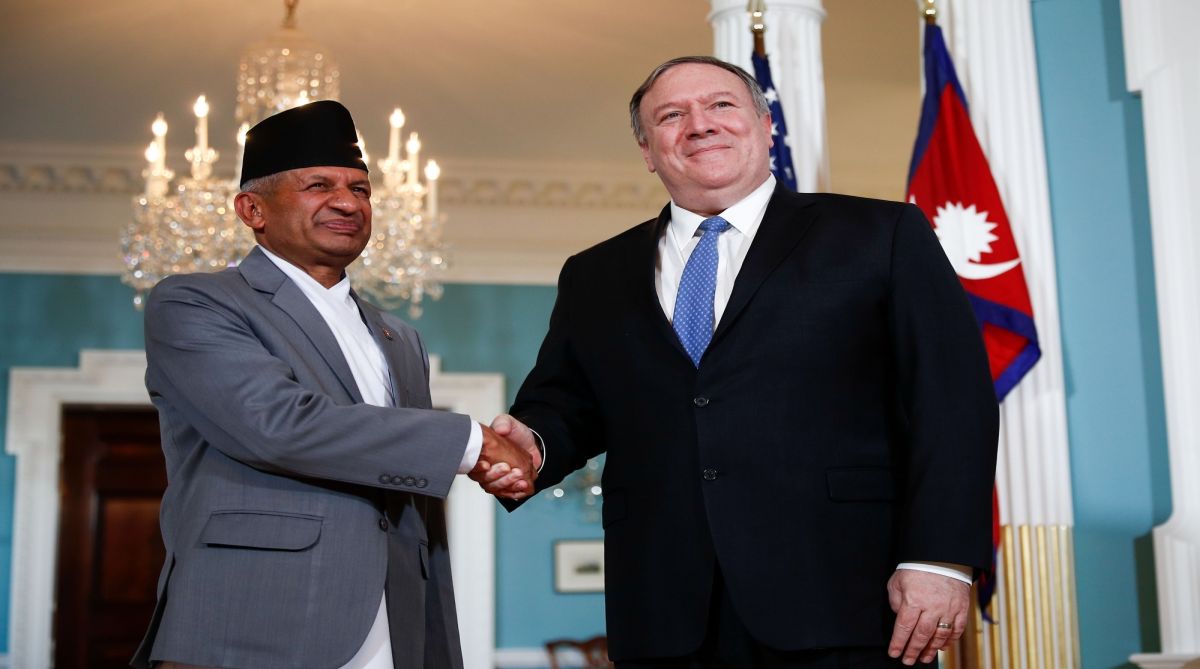US Secretary of State Mike Pompeo held a rare meeting with Nepal’s Foreign Minister Pradeep Gyawali as part of the Trump administration’s effort to thwart increasing Chinese influence in the Himalayan nation.
Pompeo described his meeting on Tuesday with Gyawali as historic and said this demonstrates America’s commitment to its strong partnership with Nepal.
He emphasised the great potential for further development of the US-Nepal ties, State Department deputy spokesperson Robert Palladino said.
During the meeting, Mike Pompeo highlighted the enduring strength of the US-Nepal partnership and the close people-to-people ties that form the foundation of the relationship.
“The two leaders discussed Nepal’s USD 500 million Millennium Challenge Corporation compact, Nepal’s central role in a free, open, and prosperous Indo-Pacific, and global issues, including North Korea,” Palladino said.
The meeting came amidst China’s foray into the land-locked Himalayan nation where Beijing has been investing heavily for the last few years to enhance connectivity and infrastructure.
The US is concerned about Chinese investments in the Indo-Pacific and stepped up its efforts to expand its engagements with the countries in the region, including India and Nepal.
It fears that Chinese investments and activities are undermining sovereignty and economic stability in the region and will also be a threat to America’s vision of a free and open Indo-Pacific.
American officials believe that said China’s Belt and Road Initiative for infrastructure development and investments in countries in Europe, Asia and Africa lacked transparency and was aimed at fulfilling China’s own security and strategic interests rather than promoting economic development.
They also warn that Chinese credit could lead to debt trap and undermine sovereignty.











